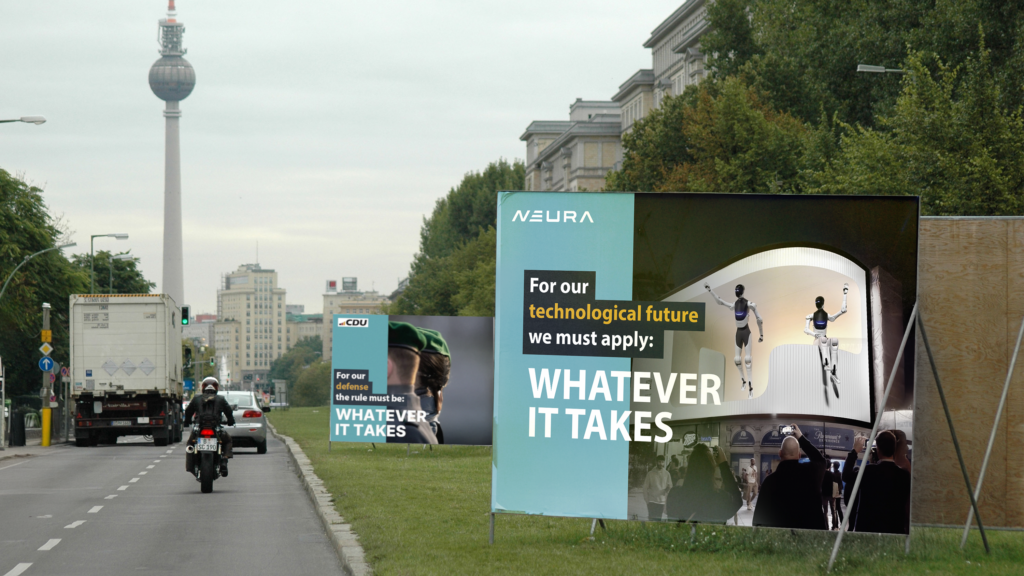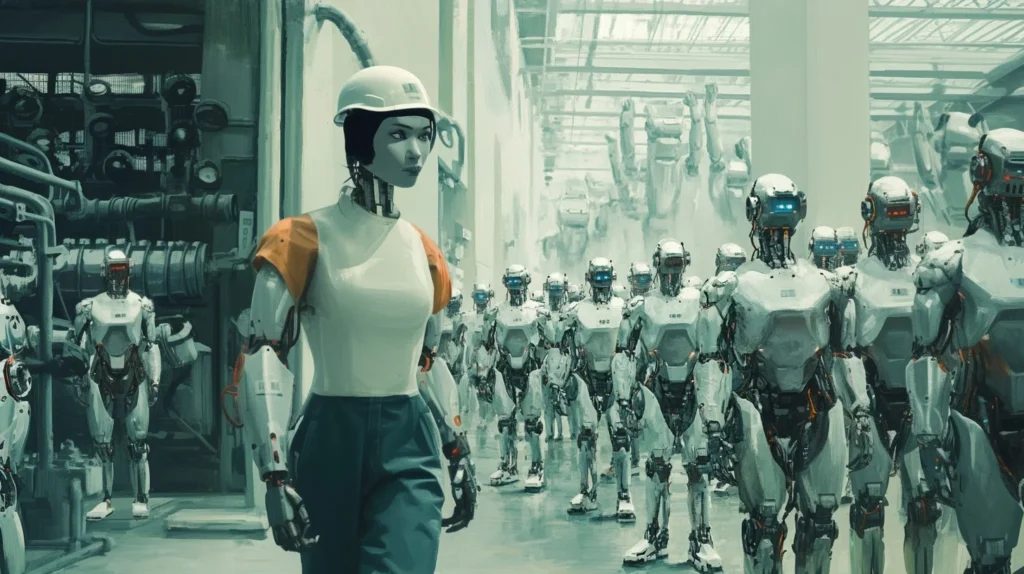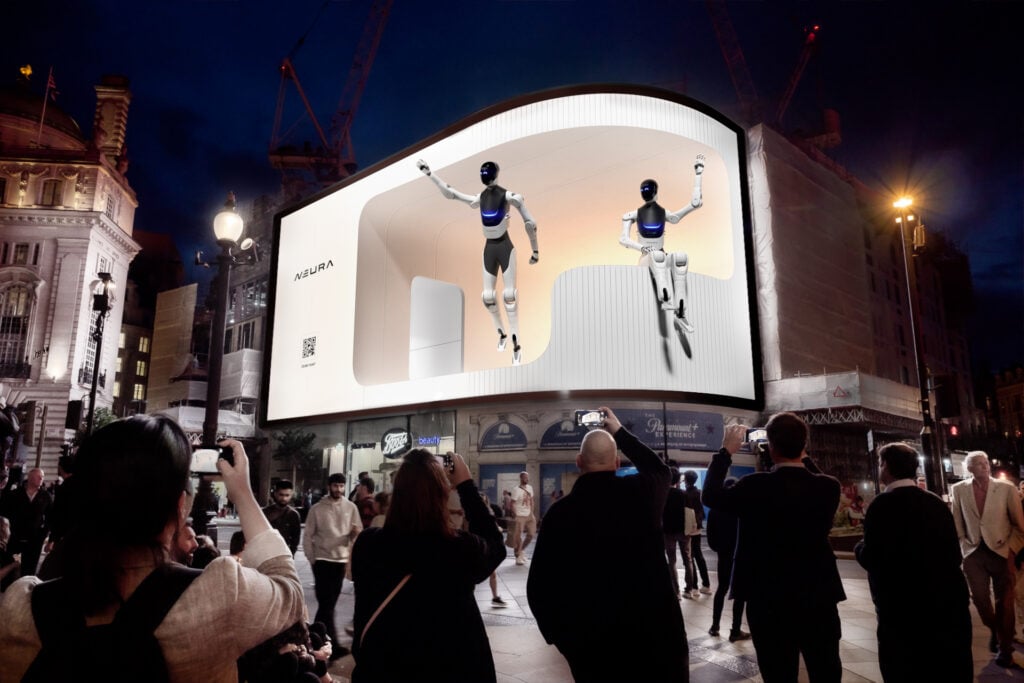What better way to hide your fear of the future and of change than to claim to be safety-conscious and down-to-earth? And what’s more secure than concrete? Germans just love concrete! After all, everything here revolves around building things. The construction industry has been crazy busy for years. With low interest rates, new buildings were springing up all over the place. Of course, building became more and more expensive. And then materials became scarce, making everything even more expensive. People started talking about “construction inflation”. And now many are saying we need to subsidize the building industry. Why do we in Germany believe that growth, a bright future and success go hand in hand with positive developments in the construction industry? We equate economic growth with building – but is this really the way we should be thinking? Why don’t we invest more often in ideas? In clever minds or seemingly mad inventors who don’t need an office in a fancy, brand-new business center, but just a year or two of financial support while they tinker in a garage on the next big thing? Maybe we’re not worried that they’ll fail and the money will be gone. Maybe we worry more about what will happen if they succeed in their garage?
Is Cyber Valley really innovative?
That’s exactly what happened in the early days of Silicon Valley. Ingenuity was the name of the game, and company headquarters were often a garage. And how is it today? Silicon Valley is the global center of high technology and innovation in the world – almost all the big American IT companies are based there! But in Germany, people like to put the cart before the horse. Take Cyber Valley, for example. The state of Baden-Württemberg invested around €60 million in the new building on the campus of the University of Tübingen. Recently, a new AI campus was also to be built there. Bosch wanted to invest 100 million Euros. The plan was to build a place for about 700 experts to do research in the field of artificial intelligence. In the end, the company pulled out, and the Mayor of Tübingen, Boris Palmer, tried to lure Bosch back with public money. Luckily it didn’t work! What a waste of the taxpayers’ money that would have been! If Bosch itself doesn’t believe in the project, even our hard-earned cash won’t make it a success. Perhaps Bosch has also realized that neither investment in futuristic buildings nor in large-scale AI projects will save Germany as a global economic player, but only investment in clever minds with innovative ideas!
But they rarely come from politics or the old economy. With the exception of Amazon, all the business partners in Cyber Valley are between 50 and 100 years old. Besides Bosch, they are BMW, Mercedes and Porsche. So many companies from the automotive industry – you can only imagine the kind of future projects they’re investing in! But Germany has so much more to offer than just constructing buildings and making cars. We have to realize this in order to remain internationally competitive. There’s an old business saying: “If you don’t change with the times, the times are going to change you!”.
Are we Germans cowards?
Of course, I prefer utopias and don’t want to spread doom and gloom here, but sometimes you just have to be blunt. Those who know me already know what I’m getting at: I wonder whether a society without significant investment in good ideas, knowledge, research and education is sustainable at all. There are so many areas where we need inventive minds. Take electromobility and AI, for example. We’ve long lagged behind China and the US in these areas. In San Francisco today, I can see three to five driverless taxis passing by in half an hour. That doesn’t happen in any major German city. In the US and China, people are testing technology and learning from it. In our country, legal and, above all, financial obstacles are holding us back.
I sometimes ask myself, where does this fear of the new, the unknown, come from in Germany? Yes, even Neura Robotics has to explain from time to time why we’re so enthusiastic about visionary projects such as MiPA, the multi-purpose service robot, or our humanoid robot 4NE-1. After all, there’s plenty of demand for industrial robots right now. A typical German appeal to be more down-to-earth! We could, of course, tap further into the huge global demand for powerful collaborative robots. But is that sustainable? In a few years, robots will take on a whole new role in everyday life outside the manufacturing industry. This will require versatile, flexible robot platforms that can be taught to do all sorts of things. Do we really want to wait for the next big thing, a smartphone with arms and legs that can take out the rubbish, to come from the US or China? No, we don’t.
InterAlpen gives Neura 15 million
I also don’t want to hide the fact that Neura has been able to find European and German investors who are very supportive of our visions. And I am very grateful to have experienced a wonderful exception to the rule I just criticized. But in the course of our last financing round, I gained deep insights into the very different mind-sets of German and, for example, American investors. And my experiences with political and public institutions have also been, shall we say, very mixed. That’s why I’m particularly pleased that the US company InterAlpen Partners has now invested 15 million euros in Neura. InterAlpen founder Stephen George was one of the founding partners of Capricorn. There he invested early in companies such as Tesla, Epic Systems, SpaceX and Twitter, which later became global market leaders. I take this as a good sign that we’re on the right track with Neura Robotics.
So, for things to get better for us, we just need to trust ourselves a little more. Our deep longing for security and stability has undoubtedly made us Germans successful for a long time – but things are not set in stone! I’m convinced that by promoting more extraordinary and even utopian ideas, we won’t only maintain Germany’s position as one of the world’s leading economies, but also make our country really popular and desirable again – both for international investors and for skilled workers from all over the world. Perhaps some of the bright minds who left Germany because of the lack of prospects will return? It would certainly pay off to focus more on our soft-skills. And if we really want to give the construction industry a boost, let’s do it with a major renovation offensive for schools, colleges and universities. Now that’s what I would call a political compromise that could help us achieve our goals.







